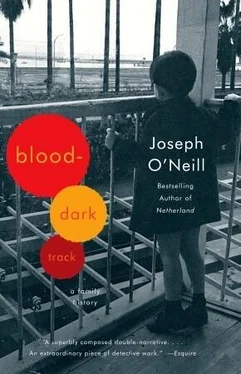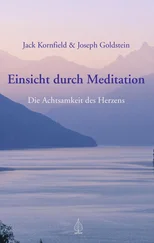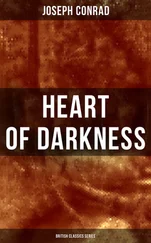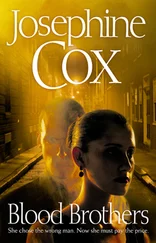Meanwhile in Iskenderun, where the Dakak family lived, trouble started after rumours spread from Adana of violent Armenian insurrection. On 17 April, Muslims — Turks, Kurds, Circassians — armed with revolvers, long knives, and guns plundered from military stores, began to march about the town in white turbans and to terrorize the rural Christian populace; houses and hamlets in the hills surrounding Iskenderun could be seen in flames. That evening, the British Honorary Consul, Joseph Catoni, reported, ‘A large number of families left Alexandretta by the Austrian mail steamer for Cyprus.’ In the steamer, it could safely be inferred, travelled Caro and Basile Dakak and their three children — who included, of course, my nine-year-old grandfather.
On 30 June 1909, the representatives of the Christian communities — Gregorian, Armenian, Protestant, Roman Catholic, Syrian, Greek Catholic, and Chaldaean — made the following public declaration:
The Christians of the district and city of Adana desire to express their deep regret concerning the great misfortune which has befallen them, and the false imputation raised against them. They desire to make declaration as to their real position.
We, the Christians of Adana and adjacent districts, have been faithful to the constitution from the time of its proclamation, and we earnestly desire its continuance and success. As true Ottoman subjects, our desire and effort has been to protect the constitution and to be found on the side of those who love and serve it. We emphatically protest against all imputations of rebellion made against us. We have never rebelled, and the idea of rebellion has never entered our minds. We, although loyal subjects, have suffered and been persecuted, and we have been sacrificed to the envy and malevolence of bigoted and evil-minded persons. We are the victims of machinations and schemes which caused heaven and earth to weep and wonder. Our loyalty to the Government is proved by the fact that in the very beginning of the troubles we appealed for Government protection, and later, on the first possible opportunity, we renewed our appeal.
We again declare our loyalty to the constitution. We are ready and eager to make any sacrifice for the true welfare of our beloved land, and we declare also that we cherish no spirit of revenge, notwithstanding the suffering which we have endured. Our earnest plea to our Muslim fellow countrymen is that they should work in harmony with the various other communities which compose the Ottoman Empire. May the goodwill and fellowship which appeared at the time of the proclamation of the constitution appear again!.… Let unity, fraternity, equality and justice prevail.…
As I read this pathetic announcement — all the more poignant if one looked back on it, as I later did, with knowledge of the apocalypse looming for the Armenians — I felt ashamed that I’d always held against my Turkish family and friends their aloofness from such issues as the oppression of Turkish Kurds. I’d had no real idea of the cost of political action in Turkey or of the abysmal hazards that faced a Christian Turk.
As for Joseph, I realized that, like Jim O’Neill, he had grown up in a malignant, dreadful world that had marked him in ways I had yet to evaluate.
A few days after returning from the north of Ireland with Brendan, I drove out to West Cork to take a stroll by the river. However, when I reached Manch, the scene of so many famous poaching adventures, I impulsively swung the car through the gates of the Manch estate. Somewhere in these woods, in some Big House I’d never seen, lived the Conner family, whose exclusive fishing rights over stretches of the Bandon had been persistently violated by generations of my own family. For all I knew, nobody in my family had laid eyes on the house, at least not from the perspective of a visitor winding his way up the drive to make a social call. I drove past a meadow and then slowly up a driveway that curved through rhododendron bushes and thick forest. Manch House appeared in a clearing in the woods. It stood at the far end of a small fairway, a large, graciously proportioned, pale-stoned building with a tower and a view of the valley that, by a trick of landscaping, was unreciprocated.
I had barely stopped the engine before a cat and three dogs, including an enormous Irish wolfhound, had surrounded the car. A white-haired, white-bearded fellow in his late fifties, who later introduced himself as Con (Cornelius) Conner, came out slowly with his hands in his pockets and asked if he could help me. I explained that I was a member of the O’Neill family, from Ardkitt, and that I was researching my grandfather’s poaching antics on the river. Conner, a quiet-spoken, glumly humorous man with a soft English-Irish accent, did not know about any Ardkitt O’Neills, but he confirmed that his family owned about two miles of fishing rights. His father had given over a stretch of the river to the public in the hope of dissuading poachers, he said, but it was a crappy stretch and of course the ploy didn’t work. A jeepload of bailiffs still wandered around the river now and again, Conner said gloomily. Their duties were diffuse these days, and they even went out to sea in a fast boat that came courtesy of the EC. There wasn’t much poaching at all any more, Conner said, although needless to say there were still some idiots who took disproportionate risks, including some who engaged in an obscene competition to catch the most trout using a worm bait. There weren’t the number of fish there used to be and the incentive to poach disappeared once salmon farming made the fish available to the masses. In the old days, things were different. He could remember selling an 18lb salmon for £5 in 1952, when land cost £50 an acre.
Con Conner mentioned that he was The O’Connor Kerry — the chief of the O’Connor Kerry clan. ‘We have our own little world,’ he volunteered with an air of faint dismay. ‘We’re West British, really; our cultural feelings would be closely tied to British culture. My father was on the English side to begin with,’ he continued, seamlessly moving on to the subject of the Troubles, ‘but then joined Fine Gael when the British failed to shoot de Valera after they captured him in 1916.’ The family hadn’t always been unionist or pro-establishment in sentiment, he added. The brothers Arthur and Roger O’Connor were leading figures in the 1798 rebellion, and next year a monument was to be erected at Manch to commemorate them and the two hundredth anniversary of the rebellion.
He invited me into the house, which was built in 1826; the oldest Conner residence, the seventeenth century Carrigmore House, stood elsewhere on the estate. The ground floor living quarters had the chaotic, dustily charming ambience of a jumble sale. There was a clutter of old family portraits, old bits of furniture, and a giant old stove heater; and to complete the picture of decaying Ascendancy privilege, Oriana Conner, Con’s wife, was seated in a corner of the kitchen totting up bills with the help of an associate. Over a cup of tea, I spoke a little about my family’s years of theft on their stretch of the river. Oriana — an Irishwoman with an English accent — laughed, saying that families needed to be fed. We talked amiably for a while longer, and then the Conners showed me around the two self-contained apartments they had created for paying guests. As I left they placed a brochure and advertisement slips in my hand and urged me to tell my fishing friends at the English Bar to come over. Non-fishing guests would also find the Manch House Fishery to their liking, the brochure assured me. Riding, golf, sightseeing, gourmet restaurants and great pubs were all within easy reach. There was fresh organic produce available from the Manch organic farm, where a flock of milk sheep, poultry, and outdoor pigs lived pleasant, non-intensive lives. Over half of the estate was given over to organic farming; the rest of the estate was broadleaf woodland. A signed handwritten message appeared at the end of the brochure: We enjoy sharing with our guests the beauty and tranquillity of Manch and the Bandon river. We want you to have a thoroughly enjoyable holiday and will do our best to make it so. Con and Oriana .
Читать дальше
Конец ознакомительного отрывка
Купить книгу












